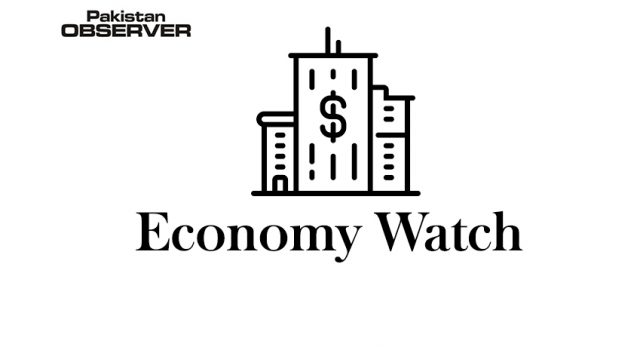Ramish Sultan
Pakistan’s economy goes through boom and bust cycles after every few years. The country enjoys brief periods of economic growth which typically don’t last for long.
Bogged down by the debt burden, trade deficits, and low industrial productivity, the economy eventually crumbles under pressure.
The weakness compels governments to take emergency measures, which is followed by a few years of stability, until the inevitable happens again. The country seems to be stuck in a loop.
To get rid of this chronic illness and improve the economy’s health, the nation must be given a powerful dose of broad-ranging economic reforms, backed by the appropriate use of monetary and fiscal policies.
An overhaul of tax policy and administration is desperately needed to lift the government’s revenues and enable policymakers to increase expenditure on public services.
Reforms must be introduced to modernize the agriculture sector, which is considered the backbone of the economy, with the target of lifting crop yields and enhancing the country’s food security.
More importantly, Pakistan must improve its energy production to cut imports and save billions of dollars every year in foreign exchange. This can be done by bringing business-friendly policies and deregulating fuel prices.
Remember, Pakistan’s ongoing economic downturn has been driven in large part by the surge in fuel prices, particularly of petrol, diesel, crude oil, and LNG.
The high cost of importing these fuels triggered a balance of payment crisis and played a big role in pushing the current account deficit to one of the highest-ever levels of $17.4 billion in FY-2022, as per a report from the State Bank of Pakistan. That’s up from just $2.82 billion in FY-2021.
To put this in perspective, last financial year’s current account deficit was 4.6% of the GDP, roughly twice as large as the State Bank’s target of 2% to 3% and up from 0.8% in FY-2021.
Without support from external loans, no wonder the country witnessed a large drop in forex reserves and the Pakistani Rupee’s value diminished sharply.
To make matters worse, the exorbitant fuel costs also pushed inflation painfully higher to double-digits.
However, if Pakistan were to ramp up its production of petrol and diesel by encouraging refiners to expand capacity and enhance competition in the fuel segment through fuel price deregulation, then this might solve a lot of the problems and put the economy on a firmer financial footing.
The refineries in Pakistan process crude oil to produce two of the world’s most highly sought-after commodities – petrol and diesel.
Both of these refined products trade at a premium over crude oil, and in 2022, following the resurgence in global demand, their prices have gone up substantially.
Many oil refineries around the world, including in India, are capitalizing on this strong demand by not only meeting the needs of the domestic market but also international buyers. Unfortunately in Pakistan, due to the tough business environment, the refineries have not been able to operate at maximum capacity.
The underutilization of oil refineries increases Pakistan’s reliance on imports. On top of this, the impediments towards growth of the oil refining industry deprives the country of an opportunity to earn export revenues.
This problem can be fixed by removing the excessive regulations that have badly hurt the industry’s performance, introducing a business-friendly oil refining policy that gives incentives to refiners to expand their capacity, and fully deregulating fuel prices.
Virtually all of the industry’s players, including Cnergyico Pk Limited, Pakistan’s largest oil refinery in terms of installed capacity, have finalized plans to upgrade their plants and increase their crude oil processing capacity.
The government must now create an environment that allows the oil refining companies to pursue their plans quickly and help push the country’s economy in the right direction.
Remember, if refineries were to operate at maximum capacity and implement plant expansion plans, then there would be no need to import petrol, diesel, and other refined products. This could translate into forex savings of hundreds of millions to billions of US dollars.
Moreover, the local refineries can also tap into the growing demand for fuels in the region, such as in Afghanistan, Sri Lanka, and Nepal, by exporting the excess production. In this way, they could bring in substantial foreign exchange.
With import substitution combined with export revenues, the oil refineries can rebuild the country’s foreign exchange reserves and play a big role in fixing the problem of the current account deficit.
Additionally, the complete deregulation of fuel prices can bring a tectonic shift in Pakistan’s oil sector.
By fully deregulating fuel prices and letting the fundamentals of demand and supply dictate decisions, Pakistan can make the entire petroleum sector more efficient, more competitive, and more lucrative for investors.
More importantly, the deregulation of prices will eliminate the rent-seeking behavior that has badly damaged this sector and would promote innovation and research among oil marketing and refining firms.
Besides, an increase in competition will benefit the end consumers immensely who will see a drop in retail prices, an increase in product quality, and an improvement in services over the long term.
If Pakistan’s production of energy products becomes strong and healthy, then the current account deficit would decline substantially, the local currency’s value would stabilize, fuel prices would decline, product and service quality at petrol pumps would improve, and the threat of back-breaking inflation induced by expensive energy imports would recede. Therefore, energy sector reforms must be introduced.










